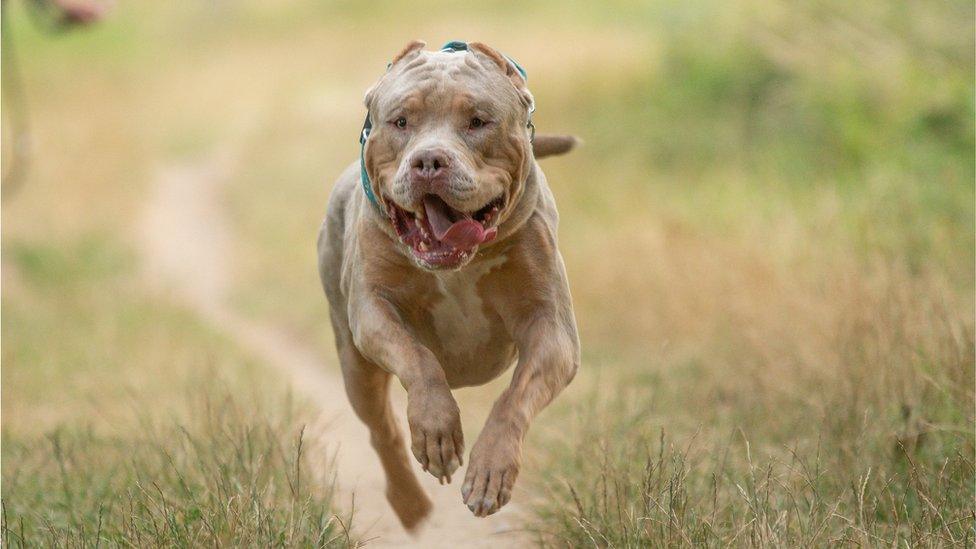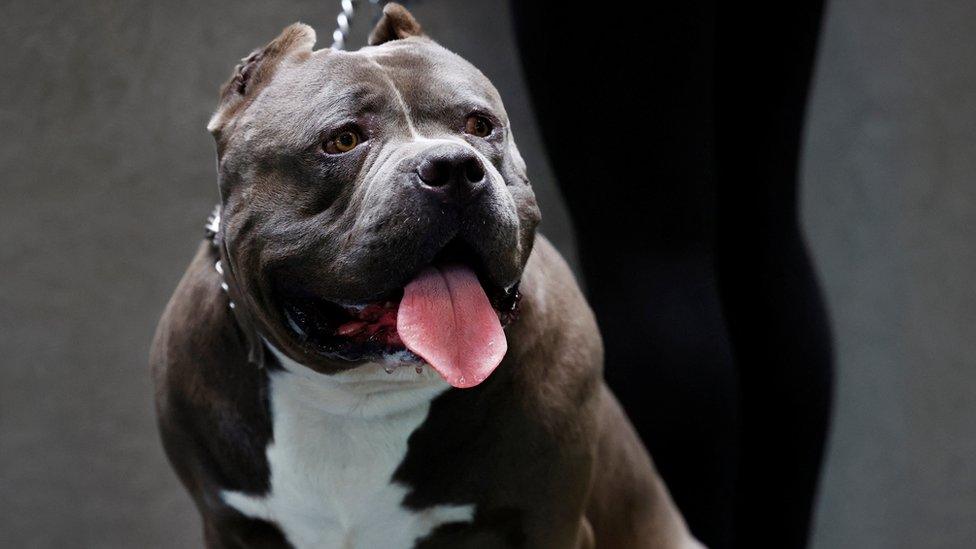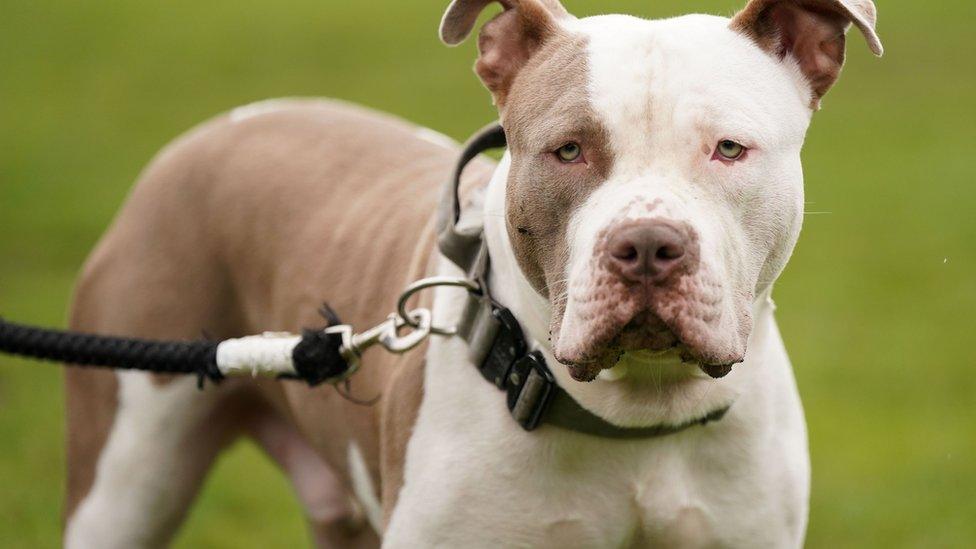Scottish government announces XL Bully dog 'ban'
- Published
- comments

XL Bully dogs will be subject to new controls in Scotland
Scotland will impose safeguards on XL Bully dogs similar to those in England and Wales.
The breeding, selling and abandonment of the animals will all be outlawed under measures announced by Community Safety Minister Siobhian Brown.
Dogs must be kept muzzled and on a lead while in public, but owners will be able to apply for an exemption certificate.
The new legislation will come in to force at a later date.
Ms Brown said it was wrong to categorise the restrictions as a "ban," insisting they had been introduced under "exceptional circumstances".
Laws on ownership of the dogs came in to force south of the border on 31 December.
The Scottish government accepted there had been an influx of the animals being "rehomed" since that date after the measures were introduced in response to growing concerns over attacks.
Ms Brown said the UK government had failed to act in stopping the dogs being brought to Scotland.
She said the safeguards were essential to "public safety," adding: "The importance of responsible dog ownership is hugely important, but sadly there are some cases of irresponsible dog ownership that can understandably lead to operational challenges for the police as well as local authority dog wardens.
"It is therefore now right to replicate the regime in England and Wales so that we remove the ability of English and Welsh dog owners to use Scotland to get rid of their dogs.
"These new safeguards, which will include a requirement for XL Bully dogs to be muzzled and kept on a lead in public places, will help ensure public safety."
Those wishing to keep their dogs will be able to do so for a fee, which has yet to be announced.
'Dithering on rules'
Owners registering their dogs for exemption in England and Wales are charged £92.40.
Under those guidelines, the dog must also be microchipped and neutered.
Compensation will be payable to owners who choose not to keep their dogs, including reimbursement for euthanasia.
The Department for Environment, Food and Rural Affairs definition states that an XL bully has to be 20in (51cm) in height if it is a male or 19in (48cm) in height if it is a female.
The Scottish government had previously complained that its UK counterparts had not kept it informed of the action it was taking.
First minister Humza Yousaf said it would "replicate" the UK laws last week.
But Tory justice spokesman Russell Findlay accused the SNP of "dithering" on the rules, adding that they had put political "point-scoring" above public safety.
He said: "After adults and children across the UK were maimed and killed by XL Bullies, UK ministers rightly moved quickly to protect the public. But the SNP decided to reject the same measures.
"Siobhian Brown should explain how many XL Bullies have been brought into Scotland while she and Humza Yousaf dithered, take responsibility for her inaction and apologise to anyone who suffers harm as a result."
'Unstable situation'
Lindsay Fyffe-Jardine, chief executive of Edinburgh Dog and Cat Home said animal rehoming centres were already "creaking under the pressure" of abandoned pets amid the cost of living crisis.
The charity recently acquired Kira, an XL Bully who had been taken to Scotland from England after the ban was introduced.
She said the family Kira had been staying with realised they were unable to care for her before she was referred to the centre by a boarding kennel.
Ms Fyffe-Jardine told BBC Scotland News the charity feared some dogs would "end up on the streets".

Edinburgh Dog and Cat Home acquired Kira after she was brought to Scotland from England
She said: "Kira is not in a unique situation. There are going to be many dogs who are in unstable homes right now.
"Just last night, we had a dog tied up next to the motorway and the police were called.
"This is a real situation that is going to get worse from now."
Scottish SPCA chief superintendent, Mike Flynn, said it was a "sad day" for the country's dog owners.
He urged the Scottish government to "learn from the mistakes" of its UK counterparts by bringing forward laws that punished irresponsible owners, rather than individual breeds.
He said: "We fully support legislation to protect the public, and we are deeply concerned about the rise in dog control-related incidents, but the Scottish SPCA has long opposed restrictions that focus specifically on certain types of dogs.
"We know that any breed of dog can be potentially out of control and dangerous in the wrong hands.
"We need action and solutions that protect the public as well as safeguarding animal welfare, but banning dogs because of the way they look isn't the answer."
Related topics
- Published11 January 2024

- Published9 January 2024
